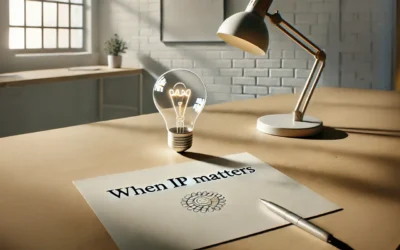After years of effort, the so-called Unitary Patent (UP) and the accompanying Unified Patent Court (UPC) are now becoming a reality.
Denmark ratified the agreements already in 2014, and with Austria’s ratification in January 2022, the final practical preparations for the court’s entry into force have now been commenced. There are still a number practical issues that need to be resolved, but the Unitary Patent and the Unified Patent Court are expected to come into force in early 2023.
The Unitary Patent (UP)
With the Unitary Patent (UP), it will become possible to obtain a single patent covering almost all EU Member States.
Under the existing (European) patent system, a European patent is granted under a central procedure but must subsequently be “validated” in those individual Member States in which patent protection is desired, resulting – in practice – in “national” patents.
The Unitary Patent will also be granted under the central procedure by the European Patent Office (EPO), but differs from the existing European patent in that it will have unitary legal effect in all European countries that are part of the unitary patent cooperation at the time of grant of the patent.
The Unitary Patent is an option that will exist alongside the existing European patent, an option which may prove advantageous for applicants, depending on their requirements and preferences.
The prosecution before the EPO leading up to grant of the patent will not be changed. However, once the European patent application has been approved, the applicant will need to decide whether the patent should be in the form of a traditional European patent, a Unitary Patent or both (if the patent is to provide protection in one or more of the EPC Member States that are not part of the UP agreement).
The Unified Patent Court (UPC)
Pursuant to current regulations, disputes concerning the infringement or validity of European patents are settled separately by the national courts of each European country. The Unified Patent Court (UPC) is a new, single court whose decisions in disputes regarding validity and infringement will have effect for all countries for which the court has jurisdiction (cf the above). The purpose of the Unified Patent Court is to make decisions in relation to Unitary Patents, but it will also, as a starting point, be making decisions in relation to traditional national validated European patents.
For existing European patents, however, it will be possible during a transition period of 7 years to request that a European patent be exempted (“Opt-Out”) from prosecution under the UPC and thereby remain in the existing national court system. As a result of opting out, patent disputes will be decided by the individual national courts.
Following the transition period of 7 years, it is expected that the UPC will have exclusive jurisdiction for all European patents that have not been “Opted-Out” at that time. A European patent may be “Opted-Out” 3-4 months before and until 7 years after the UPC comes into force, but only where, at the time of applying to “Opt-Out”, there is not already (nor has there been) a pending dispute regarding the European patent before the UPC. It is therefore important, at an early stage before the UPC comes into force, to decide whether existing European patents are to be handled by the UPC or be exempted (“Opt-Out”).
Pros and Cons
The annual renewal fees for a Unitary Patent are handled by a single authority and roughly correspond to the sum of the current annual renewal fees for Germany, the Netherlands, France and Great Britain. The annual renewal fees for a Unitary Patent may therefore be cheaper than the total annual fees for a traditional European patent, depending on the number of countries for which patent protection is desired. On the other hand, it will not be possible to reduce the costs of annual renewal fees by reducing the number of countries for a Unitary Patent, which is an option in connection with the national validation of traditional European patents.
Patent disputes before the UPC are expected to be settled within a year. If this is achieved, patents subject to the UPC may be relatively quickly enforced compared to the current time frames for enforcement before at least some national courts.
Furthermore, cases will be heard by a single court, and the result will have effect in all UP Member States as opposed to the existing European patents where the findings of the court will apply only in the individual European countries wherein the actions are brought. To begin with, the UPC system will be new and untested, which may affect the possibility to accurately predict the outcome of the cases during the first years.
What happens now?
Whether the Unitary Patent should or should not be chosen depends on the business strategy of each individual company. Furthermore, in light of the above, a decision must be made as to whether one or more of a company’s existing European patents should be subject to the Unified Patent Court (UPC) or to the national courts (via the Opt-Out solution). If a company has activities in a limited number of European countries only, there will probably be no major financial advantages in choosing a Unitary Patent compared to a traditional European patent. Similarly, there may be reason to leave existing European patents subject to the national courts as hitherto by “Opting-Out”.



